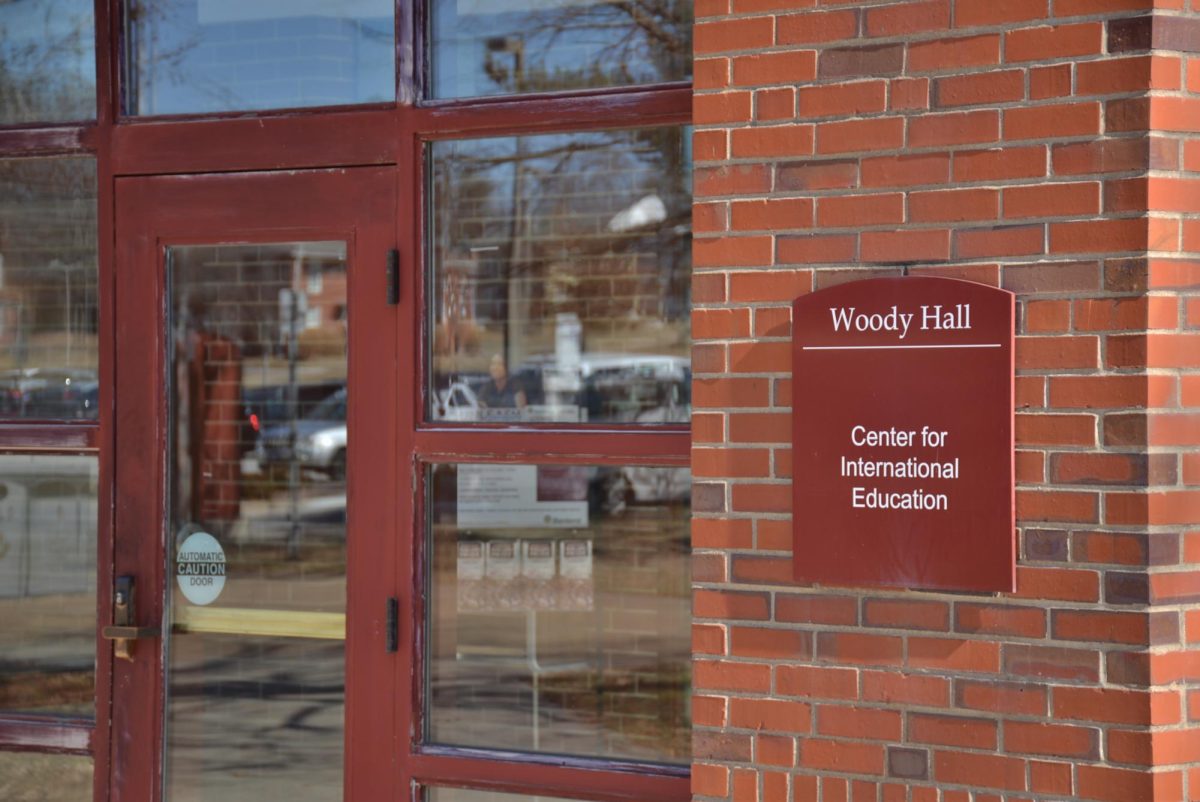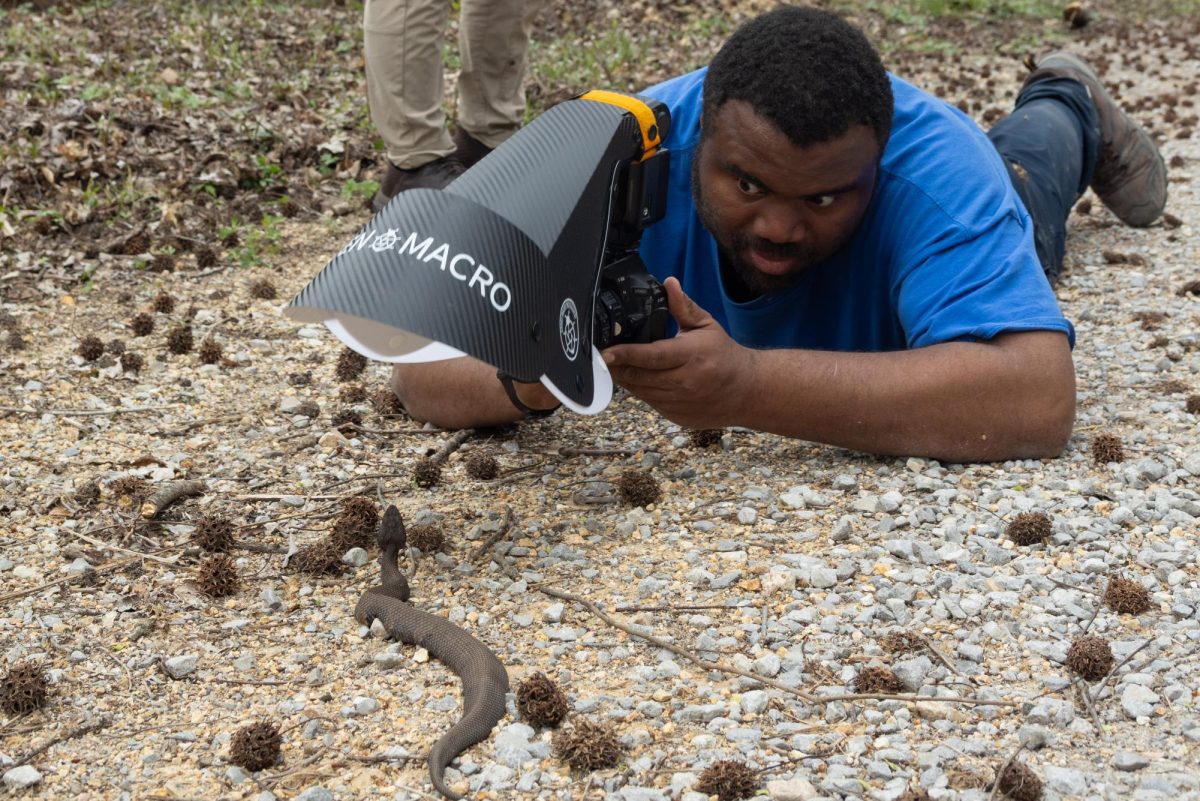Carbondale Spring plan reimagines future of city, combats climate change
March 11, 2019
The Carbondale Spring plan is a new plan to make Carbondale less reliant on the government and more reliant on community while creating jobs and combating climate change.
The plan consists of four initiatives intended to accomplish this goal, and has been endorsed by Carbondale Solidarity Network, The Flyover Social Center and Concerned Citizens of Carbondale.
The initiatives of the plan include creating and implementing food autonomy, a care worker network, a cooperative business fund and a renewable energy fund.
Advertisement
Food Autonomy
In order to become less reliant on outside food systems, the food autonomy initiative of the Carbondale Spring Plan suggests designating 10 vacant city lots to be converted to urban farming spaces.
Beau Henson, one of the organizers of Carbondale Spring, said this initiative is important in cases where the worldwide agriculture is disrupted or the federal government shuts down and benefits are cut.
“The idea of food autonomy is actually making Carbondale a resilient place where no matter what happens on the outside, we will always be able to feed ourselves,” Henson said.
According to the Carbondale Spring website, in addition to converting the 10 vacant city owned lots, the plan proposes hiring five farmer-educators to assist with the operation of the farms and train volunteers, encouraging chickens in town and facilitating the distribution of eggs and hiring a beekeeper to maintain beehives around the city.
These proposals are just the first step toward food autonomy, according to the website.
“In the following years, the city should invest in city-owned livestock, as well as dairy and meat processing facilities,” the website said. “Each of these facilities could sell surplus locally, but the emphasis is on creating a local food safety net for those in need.”
Advertisement*
Clare Killman, one of the organizers, said the plan could help to fight poverty in Carbondale.
“What better ways to abate the symptoms of poverty that are prevalent in the city than to tackle food insecurity?” Killman said.
Cooperative Business Fund
Henson said the idea behind the cooperative business fund is to is to establish a financial ecosystem within Carbondale that will allow existing businesses to be converted to worker cooperatives.
“These businesses would be owned and operated by the workers themselves in a cooperative and democratic manner,” Henson said. “The way some of us envision this is the city establishing a community development fund that would be able to put up the initial capital for a conversion to take place, I think it’s an exciting opportunity.”
Henson said in the past 10 years southern Illinois has had a problem with succession and there is no one to buy businesses going up for sale.
“[Either] some southern Illinois angel has to step in and decide they want to run [the business], or […] we have to attract capital from the outside,” Henson said. “We say the best people to run these businesses are the people that have been working there already for eight, 10, 15 years.”
Henson said because of economic barriers and workers potentially not having enough capital, there needs to be a developmental fund that will allow for collective action to take place.
Care Workers
This initiative suggests establishing a network of care workers including therapists, social workers and healers who can settle disputes and handle conflict around the city without involving the police.
“There are lots of people who are doing this work of caring for one another, caring for the most vulnerable in this community, just because they love it and because that’s the kind of people that they are,” Nick Smaligo, one of the organizers, said. “We want the city to support them and we also think that that should involve the creation of a non-police emergency line.”
Smaligo said there are a lot of situations that arise in everyday life where people feel the need to call the police because there is no one else to call.
“We want to create a team of care workers who are actively reaching out, actively connecting people to the resources that they need and that are there on call to try to mediate disputes or solve problems that you don’t necessarily need the amount of force that police bring into it,” Smaligo said.
According to the website, to implement this network, the city should hire a team of 15 care workers and set up an non-police emergency line.
Renewable Energy
This initiative proposes creating a fund to foster the installation of solar panels around Carbondale.
According to the website, the average solar household project costs around $25,000.
“After solar tax credits, the average household solar installation is $11,214 – $14,406,” the website said. “With a $1,000,000/year renewable energy fund, the city could fund about 70 such projects each year.”
Smaligo said the city already has the funds to start doing this.
“We don’t need to wait for [a] big company to come in and to develop it,” Smaligo said. “We can just start putting people to work building those things immediately.”
Plans for Funding
In order to fund these initiatives, the plan suggests reducing funding of the police force and using that funding to pay for the projects.
Smaligo said Carbondale’s police force is about double the national average for a city of its size and about double the average of other similar-sized college towns.
“We spend more than double per resident on police than the national average, so that is about five million dollars that the city is spending on police,” Smaligo said.
Smaligo said the plan is proposing to resize the police force to match national average and use the extra $5 million dollars to fund the initiatives while still maintaining a normal sized police force.
According to the website the initial cost estimate for the plan is $3,040,000.
Detailed statistics regarding funding can be found on the Carbondale Spring website.
“We have the chance to do something incredibly life changing,” Killman said. “Not just life changing for us; life changing for all of humanity. We are trying to set Carbondale up to be an example for how you can institute these types of long term, sustainable solutions to massive problems that are affecting everyone systematically across the board.”
Smaligo said the town is at a crossroads.
“Are we going to put front and center in our lives the possibility of building a future worth living in, or are we going to let this moment slip away and follow our own individual career paths or all of the things that suck us back into reproducing the world as it is?” Smaligo said.
Staff reporter Kallie Cox can be reached at kcox@dailyegyptian.com or on Twitter at @KallieECox.
To stay up to date with all your Southern Illinois news, follow the Daily Egyptian on Facebook and Twitter.
Advertisement










Susan Allen • Mar 15, 2019 at 9:37 pm
Sounds like a great plan. I would love to live in such a city. I hope you succeed and don’t listen to the naysayers. They’re just jealous they didn’t come up with it. Great job guys!
Tom Barrett • Mar 12, 2019 at 4:55 pm
Another liberal tax and spend plan that is sure to fail just like all of their other reimagine plans. Get a freaking clue people? This is so stupid it makes me want to scream.
KDU • Mar 12, 2019 at 1:58 pm
Congratulations. All of these ideas expand the government (tax dollars), increase regulation and oversight by the government (more tax dollars), make it more difficult, restrictive, and financially harder to live in the area (because of the inordinate amount of tax dollars to greatly expand the government).
Government does not create jobs or expand business. The fewer the government jobs and more free market jobs is what creates economy and re-investment in economy.
Intermediaries who are not police have failed miserably. It is often a policeman’s gun that diffuses a situation. You can have all the social services training in the world, but real life means walking into unexpected and highly dangerous situations where police would have to be called as back up anyway. Now you are paying for more government services to diffuse the initial situation, and rescue the social worker.
Why, why are you trying so hard to be Chicago?